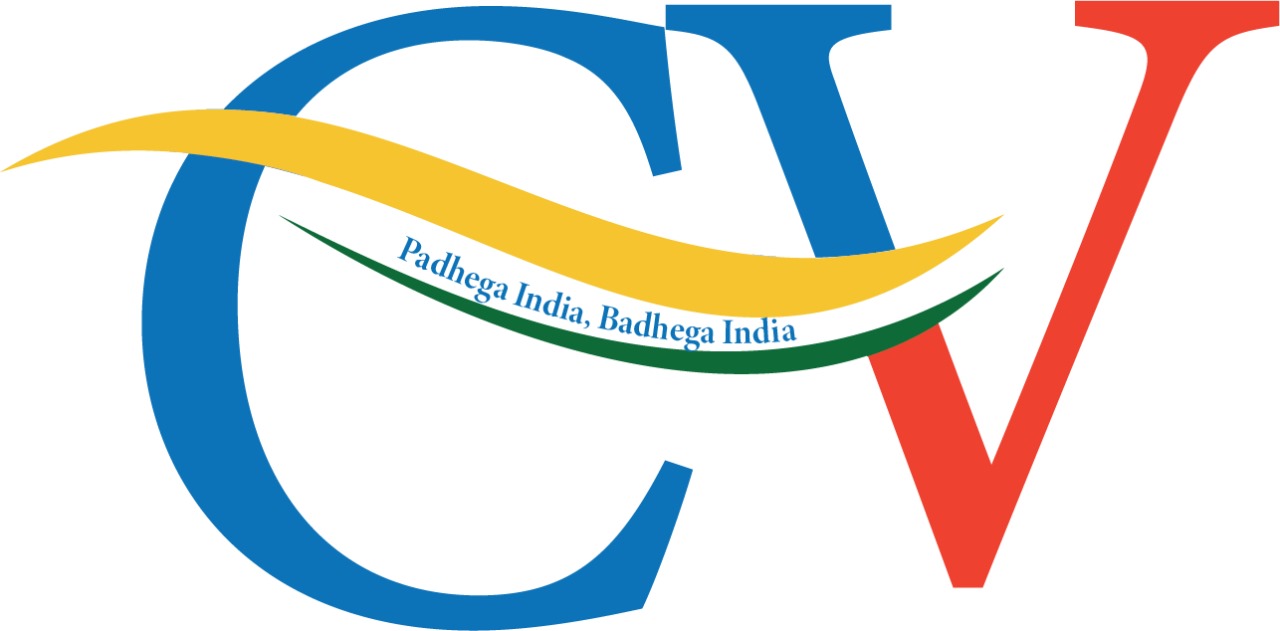Doctor of Medicine - (M.D.)
Universities
3
Eligibility
Graduation
Course Introduction
Doctor of Medicine
A Doctor of Medicine (M.D.) course is a rigorous and comprehensive program that prepares individuals to become medical doctors or physicians. This course is typically pursued after completing a bachelor's degree in a related field and requires several years of dedicated study and clinical training. During the M.D. program, students learn about various aspects of medicine, including anatomy, physiology, pharmacology, and medical ethics. They also develop practical skills through hands-on clinical experiences, where they work with patients under the guidance of experienced doctors. The goal of the M.D. course is to equip students with the knowledge, skills, and expertise needed to diagnose and treat a wide range of medical conditions, from common ailments to complex diseases. Graduates of the M.D. program can go on to pursue careers in various medical specialties, such as surgery, internal medicine, pediatrics, or dermatology, depending on their interests and aptitudes. Becoming a doctor is a challenging journey, but it offers the opportunity to make a meaningful impact on people's lives by providing healthcare and improving overall well-being.
Course Overview
The Doctor of Medicine (M.D.) is an advanced and prestigious medical degree that represents the highest level of medical education and training. This program typically spans four years and is designed for individuals who have already completed their undergraduate education and gained a strong foundation in the sciences. The M.D. curriculum is comprehensive, encompassing both theoretical knowledge and extensive clinical training. During the M.D. program, students delve into a wide range of medical disciplines, including anatomy, physiology, pharmacology, pathology, and various clinical specialties. They develop a deep understanding of the human body, diseases, and medical treatments. Clinical rotations in hospitals and healthcare facilities provide hands-on experience in diagnosing and treating patients, offering valuable exposure to real-life medical situations.
Course Eligibility
To pursue an M.D. (Doctor of Medicine) course, typically, you need a Bachelor of Medicine and Bachelor of Surgery (MBBS) or an equivalent undergraduate medical degree. Additionally, you may need to meet specific academic prerequisites, such as a high GPA and may require qualifying scores on medical entrance exams, varying by country and institution.
Universities
Admission Process
There is an online admissions process available at Online Doctor of Medicine, therefore there is no need to physically visit the campus to apply for admission. There is no entrance exam required to apply for admission to Doctor of Medicine Online because admissions are made directly. The following describes the Doctor of Medicine's admissions process for online courses:
Ask Admission QueryBrowse our diverse range of programs like MBA, BBA, MA, B.COM, Machine Learning, Python and many more...
Fill online application form with accurate.
You get your own education mentor who helps with all your questions about courses, university, colleges and fees. They're there to make things clear and easy for you.
Make your college application faster by sending your documents and paying the registeration fees.
Upon acceptance, pay fees to secure your seat and finalize enrollment
Confirm your class date, seat, enrollment number and get your gift as reward points
Course Subjects
- #Basic Sciences
- #Pathology
- #Clinical Medicine
- #Clinical Skills and Patient Care
- #Medical Ethics and Professionalism
- #Medical Research
- #Clinical Rotations
- #Elective Courses
- #Clinical Case Discussions and Seminars
- #Public Health and Community Medicine
- #Medical Seminars and Conferences
- #Medical Licensure Preparation
Doctor of Medicine's Highlights
1
Comprehensive Medical Education
The M.D. program provides a comprehensive and in-depth education in various medical disciplines. Students study subjects like anatomy, physiology, pharmacology, pathology, and clinical specialties, ensuring a well-rounded understanding of medicine.
2
Extensive Clinical Training
M.D. students undergo extensive clinical training during their program. They work in hospitals and healthcare settings, applying their knowledge to real patient cases. This hands-on experience is invaluable for developing clinical skills and bedside manner.
3
Specialization Opportunities
After completing the M.D., graduates can choose to specialize in a specific area of medicine, such as surgery, cardiology, neurology, or pediatrics. This allows them to focus on their areas of interest and expertise.
4
Path to Medical Licensure
The M.D. is a recognized qualification that paves the way for graduates to pursue medical licensure. After passing the required exams and meeting other licensure requirements, M.D. holders can practice medicine independently.
5
High Career Potential
Graduates of the M.D. program have a wide range of career opportunities in healthcare. They can work as physicians in hospitals, clinics, or private practices, conduct research, teach at medical schools, or even work in healthcare administration. The M.D. degree offers a high level of career flexibility and potential for making a positive impact on healthcare and patient lives.
Doctor of Medicine's Freights
The annual average fees for an MD program can vary significantly, ranging from INR 38,900 to INR 11,50,000, depending on the institution, location, and specialization.
Doctor of Medicine's Specialization
M.D. programs offer diverse specializations, including Internal Medicine, Surgery, Pediatrics, Obstetrics and Gynecology, Psychiatry, Dermatology, Radiology, Orthopedics, and more. These specializations enable doctors to focus on specific medical fields, develop expertise, and provide specialized care to patients. The choice of specialization depends on individual interests and career goals.
- #Internal Medicine
- #Surgery
- #Pediatrics
- #Obstetrics and Gynecology
- #Psychiatry
Course Job
- #Medical Practitioner
- #Hospitalist
- #Surgeon
- #Consultant
- #Academician
- #Medical Researcher
- #Medical Administrator
- #Telemedicine Physician
- #Public Health Specialist
- #Medical Consultant for Pharma or Healthcare Companies
- #Military Physician
- #Global Health Worker
Course Types
Offline mode
Offline Doctor of Medicine (M.D.) courses typically offer full-time, on-campus programs. Students attend classes in physical classrooms, engage in laboratory work, and interact directly with professors and peers. These traditional programs provide hands-on learning experiences and face-to-face interactions, fostering a comprehensive understanding of Medical Practitioner.
Why this Course ?
- Pursuing an M.D. course offers the opportunity to become a highly skilled and respected healthcare professional. It enables individuals to diagnose and treat illnesses, improve patient lives, and contribute to medical advancements. Additionally, it provides diverse career options, job stability, and the chance to make a meaningful impact on society's well-being.
- Passion for Healing: Many aspiring doctors are driven by a genuine desire to help others and make a positive impact on patients' health and well-being. The M.D. course provides the knowledge and skills necessary to fulfill this passion.
- Career Stability: Medicine is a profession with high job security and demand. Qualified physicians are consistently needed to address healthcare needs, ensuring a stable and long-lasting career.
- Intellectual Challenge: The field of medicine is intellectually stimulating and continually evolving. Doctors are engaged in lifelong learning, problem-solving, and critical thinking, which can be intellectually rewarding.
- Diverse Specializations: Medicine offers a wide range of specialties, allowing individuals to pursue areas that align with their interests, whether it's surgery, pediatrics, psychiatry, or any other field.
- Global Opportunities: A medical degree is internationally recognized, opening doors to practice medicine worldwide or engage in global health initiatives, providing opportunities for cross-cultural experiences.
Frequently Asked Questions
A 1 : The M.D. (Doctor of Medicine) program is a graduate-level medical degree that trains individuals to become licensed physicians. It combines rigorous academic study with clinical training, preparing students to diagnose, treat, and prevent various medical conditions. Upon completion, graduates can practice medicine independently, specializing in areas such as surgery, internal medicine, pediatrics, and more.
A 2 : Career prospects for M.D. graduates are diverse and include becoming licensed physicians in various specialties, medical researchers, educators, hospital administrators, or healthcare consultants. The program offers a wide range of opportunities in clinical practice, research, and healthcare leadership.
A 3 : Through the M.D. program, you can develop critical clinical skills, including diagnosis, patient care, and treatment. Additionally, you'll enhance communication, teamwork, research, and adaptability skills vital for a successful medical career.
A 4 : The duration of an M.D. program typically ranges from 4 to 6 years, depending on the country, specialization, and whether it includes a mandatory internship or residency. In most cases, it's a 4-year program followed by residency training.
A 5 : Transferring credits from a community college to an M.D. program is typically not possible. Medical programs have specific prerequisites and rigorous curriculum requirements, making credit transfers uncommon. Admissions are usually based on previous medical education, entrance exams, and program-specific criteria.


